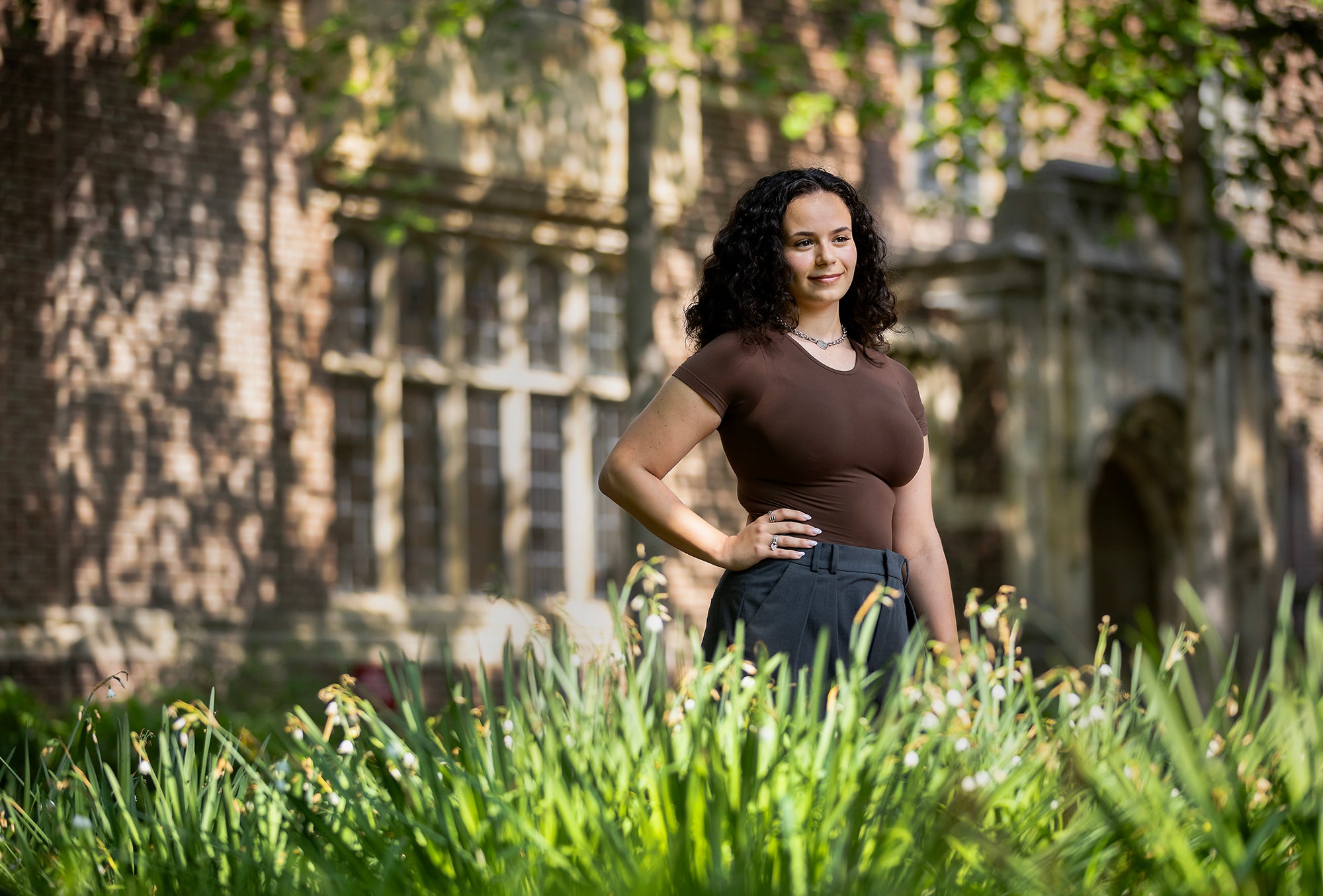Who
Amanda Yagerman, a fourth-year from Queens, New York, has always loved the humanities and became a history buff after having two inspiring teachers in high school who brought lessons to life. But as she prepared to apply for college, she was interested in the Navy ROTC program, where they tend to value STEM majors. “When I was applying, I said that I’d major in biology because I thought, ‘Hey, I could end up liking it. Who knows? Let me try it,’” she says. “Regrettably, it just wasn’t for me.”
So Yagerman had to get up the nerve to write a letter to the Navy to get approval to switch to a history major. It wasn’t guaranteed. But since getting the OK, the history and English double major hasn’t looked back.
“The reason that I’ve always loved history is that I’m fascinated by the idea that there have been so many different iterations of the human experience,” she says. “There’s so much that we all have in common, but there’s also so many civilizations and societies that have risen and fallen that had completely different value systems than us and lived their lives in a completely different way.”
As for double majoring in English, “my mom was an English major, and she always raised me with a healthy respect for the Oxford comma,” Yagerman says. “There have been so many courses that overlapped, and I’ve been able to really combine the two in interesting ways.”
What
As a part of the Navy ROTC program at Penn, Yagerman says her experience has been “the best of both worlds.”
“A free Ivy League education is nothing to sneeze at, and I get to enter the military as an officer, which gives more opportunities for a career path that otherwise wouldn’t have been open to me,” she says. “What’s nice is that I am a college student for most of my time.”
Yagerman’s day-to-day is something like this: most weekdays she is at the NROTC unit from 6 to around 10 a.m. or so, and the rest of the day is her “normal college student” time. One day a week, the NROTC students must walk around campus in uniform for visibility, and the training consists of a physical component, leadership labs, and naval science classes. Penn is the host school of the Philadelphia consortium NROTC unit which also has students from Drexel and Temple.
Yagerman will be commissioned into the Navy as an ensign on May 18 and then will become active duty when she graduates from the College of Arts & Sciences the next day. She’ll then head to flight school with the main goal of flying helicopters.
Why
Yagerman says combining her time at Penn with the NROTC experience has been “pretty great”.
I’ve gotten the college experience; I’ve formed such great professional and personal relationships at Penn, but I’m also training to enter the military and I get all those benefits, too,” she says. “I wanted the college experience. But I also really felt like I needed discipline and direction in my life, and I wanted to be part of something that was bigger than myself.”
Penn’s diverse community will directly benefit her in her new role as a naval officer, she says.
“I’ve had the chance to interact with people who come from so many different backgrounds, religiously, ethnically, politically, and people with very different viewpoints. As a naval officer, I’m going to be encountering so many people who are coming from so many different walks of life and who have so many different perspectives. Being at Penn has taught me to communicate with people better.”
Something they always stress in our training for the Navy is being a good leader, Yagerman says.
“I think one of the main parts of that is really knowing who you’re leading and caring enough to get to know who you’re leading. That’s another thing that Penn has really taught me, in the history department particularly,” she says. “Most of our classes make an effort to be intersectional and take a look at the same historical event or problem from varying viewpoints. That’s a really important way to learn how to successfully get your point across and make connections with people as you move in the world.”

